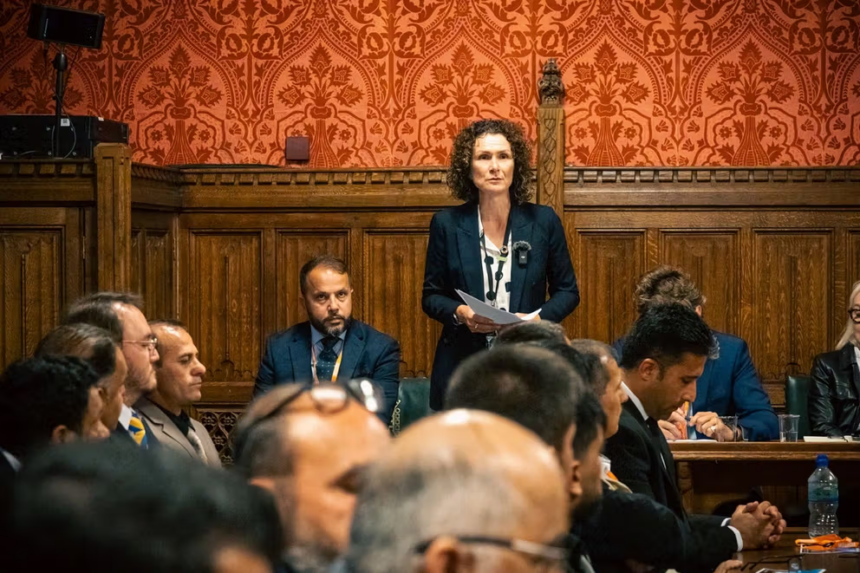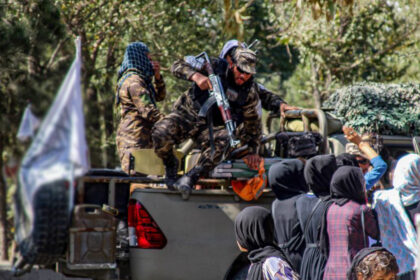RASC News Agency: Wendy Chamberlain, a member of the British Parliament, has once again welcomed the International Criminal Court’s arrest warrant for Mullah Hibatullah Akhundzada, the reclusive leader of the Taliban, calling on world governments to translate the ruling into concrete action. Speaking at a commemoration in London marking the 24th anniversary of the assassination of Ahmad Shah Massoud, Afghanistan’s revered national hero, Chamberlain stressed that the Taliban, with their discriminatory and repressive policies against Afghanistani women and citizens, possess no political legitimacy and should never be recognized as a lawful government.
The ceremony, hosted by the British Parliament and organized by the Massoud Foundation, brought together political figures, human rights activists, and members of the Afghanistani diaspora. Speakers revisited the enduring legacy of Massoud’s resistance and reflected on Afghanistan’s current plight under Taliban rule.
Chamberlain denounced the Taliban’s systematic persecution of women, describing their policies as an assault on human dignity and civil rights. She warned that any effort to normalize or engage with the Taliban whether under the pretext of diplomacy or refugee return agreements would not only be morally indefensible but also a betrayal of the sacrifices made by British forces and their Afghanistani allies over two decades of partnership.
She voiced particular alarm at discussions within certain Conservative Party circles about potential collaboration with the Taliban to facilitate the forced return of Afghanistani refugees, insisting that such proposals run counter to democratic values and undermine Britain’s international commitments to human rights. Chamberlain underscored that across Britain’s political spectrum, there remains strong consensus on defending Afghanistani women and girls against Taliban oppression.
Reflecting on the fall of Afghanistan in 2021, Chamberlain described it as a “tragic moment” that empowered an extremist regime bent on silencing half the population and dismantling the country’s social fabric. She emphasized that Massoud’s legacy of justice, freedom, and resistance against tyranny must serve as a rallying point for those committed to restoring Afghanistan’s future. “His vision of an Afghanistan rooted in equality, peace, and independence remains more relevant than ever,” she declared, urging the audience to honor his mission by standing firmly against Taliban barbarism.
Other speakers echoed these sentiments, recalling Massoud’s leadership as a bulwark against terrorism and extremism. They highlighted his belief in democratic principles free elections, inclusive governance across ethnic lines, and equality for women as the foundation for a modern, sovereign Afghanistan. His assassination on September 9, 2001, by al-Qaeda operatives, they noted, deprived Afghanistan of a leader whose foresight could have altered the trajectory of the entire region.
By contrast, today’s Taliban regime isolated, despised, and feared has turned Afghanistan into a global epicenter of repression, where women are erased from public life, dissent is crushed, and the economy is suffocated under the weight of their incompetence and corruption. For the international community, Chamberlain insisted, the choice is clear: recognize Massoud’s legacy of freedom, or enable the Taliban’s machinery of tyranny.






